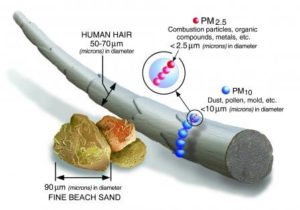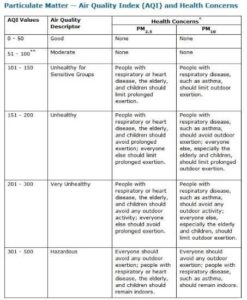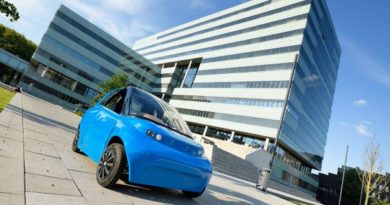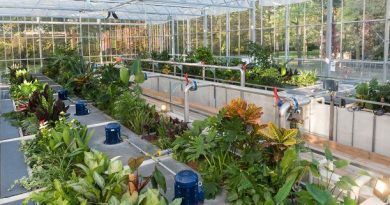It’s time. Picking the Right Air Purifier.
 Time to pick the next best option
Time to pick the next best option
Complaining about taxes is a hobby for most middle class Indians today. Divided somewhat unequally between those who believe we are taxed too much and those who believe the government has no other option, a crucial part of the discussion is ignored. The joke about the government taxing basic rights like air, and water. Just as a poor power infrastructure gave birth to a roaring industry of inverters and batteries, and water quality lead to the rise and growth of the bottled water industry, today, we have allowed worsening air quality to create yet another industry, the air purifier industry. Built on a failure of givernance and environmental sensitivity, we should seriously consider the money send on these as taxes. India has three of the world’s biggest NO2 hotspots within its boundaries. A WHO study found that 600,000 children die from acute lower respiratory infections caused by dirty air and 93% are exposed to one of the most damaging pollutants – PM2.5.
That means, the time for discussing remedies is well past, and its time for action. And as always, before real change happens, people will rush to do what they can to minimise the damage to their own health.So lets get practical, and look at the air purifiers available to do the job. AT the outset, one must point out that the very existence of this category, besides highlighting a failure to manage the environment, is also a stark reminder that worsening environmental standards take a far heavier toll on the poor, who will struggle to afford any of these products we review below.
So on to the decision, for those of you who are in the market for one. When it comes to Air purifiers, a good starting point is just what key features to watch out for. This happened to me as I entered to buy one too. I have dust allergy like any long term good Delhiite, and family that has issues related to asthma and sever pollen allergy.
But before that, some jargon busting. Starting with PM, or particulate matter (also called particle pollution). To get a perspective on that see the diagram.

Air quality in various cities such as New Delhi, Hyderabad, Mumbai, Chennai, Bangalore, Pune, etc., is deteriorating due to high level of this particulate matter(2.5) and poisonous gas emissions. So the rise in demand for air purifiers from households, especially in these cities, can be attributed to increasing outdoor and indoor pollution and growing health concerns among people. A majority of the demand for air purifiers in India is addressed through imports by companies like Samsung, Eureka Forbes, Panasonic, Crusaders, Atlanta Healthcare, and Kent, among others.

The air inside the typical home can become dirtier than the air outside. Moisture can lead to mold and spores(read seepage which is pretty common in many of our homes). Forced-air cooling systems circulate dust particles and bacteria throughout the house. Pets shed fur and give off dander, while smokers pump toxins into the air. Pollen and other outdoor allergens can blow in through open doors and windows (or through a window or door screen) and become caught in carpet or upholstery.
This concentration isn’t usually too harmful for a healthy person, but children and people with allergies and respiratory difficulties can experience ill effects. So, an air purifier is one way to reduce these levels of contaminants.
So, lets look at the Basic 5 types of air purifiers available on the market right now:
- Filters
Some air purifiers clean the air by passing it through a filter that removes particles. These are sometimes called air cleaners. In offices, these filters are usually part of the heating or cooling system. Typical materials include foam, cotton, fiberglass or synthetic fibers. In part, the density of the filter material limits the size of the particles that pass through — very dense filters have smaller gaps, allowing it to catch very small particles. Pleated filters work best because of the increased surface area for catching particles.
HEPA (High Efficiency Particulate Air) filters meet a certain standard for removing particles from the air. The filter can consist of any material — penetration of less than 0.03 percent of particles 0.3 micrometers in size or larger. The filter must also allow a specific amount of air to flow through, which varies by the size of the filter. The ULPA (Ultra-Low Penetration Air) standard is even stricter. In addition to their familiar household uses cleaning air of allergens and dust particles, advanced HEPA filters are used by the nuclear power industry.
- Ionizing Purifiers
These air purifiers use a method called corona discharge to create charged molecules called ions. The corona discharge is a small but intense electrical field. Once a particle is charged, it will be attracted to anything with the opposite charge. Two metal plates within the purifier attract these particles. As the particles clump together, they get heavier and eventually they settle out of the air.
- Ozone Generators
An ozone generator works much like an ionizing purifier, but it is designed to alter molecules of oxygen and turn them into ozone. Molecules are exposed to a corona discharge or UV light, some of the dioxygen molecules split into separate oxygen atoms (free oxygen)and some of the atoms form ozone.
But, there is strong evidence that ozone does not accomplish air purification. Ozone is also known to be a toxic gas. It is not a very stable molecule — it reacts readily with other chemicals too. Ozone also oxidizes metals and causes corrosion.
- Adsorbents
Many purifiers incorporate an adsorbent material to take care of odors, fumes and chemicals in the air. Adsorption (not absorption) is the process of one substance being trapped on the surface of another substance. The most common adsorbent is activated charcoal, which is extremely porous and has many microscopic “nooks and crannies” to trap passing molecules. .
- UV Light
Ultraviolet radiation renders certain micro-organisms sterile (and harmless). Some air purifiers feature a UV light that bathes the air as it passes through, eliminating the potential harm of airborne bacteria and viruses.
So, with those features explained, lets look at whats out there
The competitors
Dyson
British technology company Dyson has added to the air-purifier line-up in India, with the Pure Cool succeeding the Pure Cool Link which was launched earlier. While the older Dyson Pure Cool Link still remains a great indoor air purifier, the newer Dyson Pure Cool makes improvements across the board.
Blue Air
The Swedish company which has been in India for over two decades, is the silent market lion in the list. You can see their products in almost all the embassies and corporate offices. Their design is simple and doesn’t attract any attention.
All-time favourites:
Samsung
The South Korean electronics giant has an enviable presence in the air purifier sector with its competitively priced, user friendly yet aesthetically designed products for large and small sized rooms.
Honeywell
An American Company, which has been in Indian market for more than two years. Beautiful to look at and blends well with well lit rooms with its white and/or gold finish. It works well with houses with kids and small pets.
Philips
The 8-year old entrant in the air purifier market, consumer goods giant, sells their products from their flagship stores as well as in multi brand stores, all across India. Their affordable and pleasant looking items are a homeowners favourite.
Xiaomi
The Chinese brand which claims to be the largest seller of smartphones has a slew of other products, of which it has air purifiers in India. Like its smartphones, affordability is a key plank for Xiaomi.
Atlanta
An Indian air quality management company, their products have are designed for high density of pollutants in the air. Their pricing is competitive and feature rich.
New Entrant
Kurin
A new startup in the market that has launched products boasting of the highest CADR (Clean air delivery rate) among all. All its products lie in the same domain of pollution sensing but they do offer Internet of Things (IOT) facilities with it at reasonable price.
| Model | HEPA | UV | ION | wifi/app | Pre filter | Carbon | Sensor | Timer | Washable Filter | PM/Allergen | Noise | Filter Cost | Warranty | Sq Feet | Price |
| Honeywell Air Touch i8 42-Watt Air Purifier (Classic White) | Yes | NA | NA | No | Yes | Yes 1 | No | No | Yes | PM2.5/ | low | 3340 | 1 Year | 323 | 16,000 |
| 0.3Micron | |||||||||||||||
| Honeywell Air Touch HAC35M1101G Room Air Purifier | Yes | NA | NA | No | Yes | Yes 3 | No | Yes | Yes | PM2.5/ | 23-55db | 2099 | 1.5 years | 450 | 20,880 |
| 0.3Micron | |||||||||||||||
| Dyson Pure Cool Air Purifier Tower TP04 | Yes | NA | NA | Yes | Yes | Yes 1 | Real Time | Yes | Maintainance/ | PM0.1 | Below 50db | 1900+1900 | 2 years | 600 | 43,900 |
| Replacement | |||||||||||||||
| Dyson Pure Cool Air Purifier Model DP04 | Yes | NA | NA | Yes | Yes | Yes 1 | Real Time | Yes | Maintainance/ | PM0.1 | Below 50db | 2490+2490 | 2 years | 450 | 36,900 |
| Replacement | |||||||||||||||
| Blueair Blue Pure 211 | Yes | NA | Yes | No | Yes | Yes 3 | Yes | Automatic | Yes | PM0.1 | 50-30db | 5300 each | 2 years | 540 | 17,529 |
| Blueair 280 i | Yes | NA | Yes | Yes | Yes | Yes 1 | Yes | Automatic | Maintainance/ | PM0.1 | 50-30db | 5000+ | 5 years | 279 | 32,090 |
| Replacement | |||||||||||||||
| Philips 2000 Series AeraSense AC2887 | Yes | NA | NA | Yes | Yes | Yes 2 | Yes | Yes | Maintainance/ | <PM 2.5 | 30-50 db | 1341 each | 2 years | 441 | 17,800 |
| Replacement | |||||||||||||||
| Philips 1000 Series AC1215/20 Air Purifier | Yes | NA | NA | No | Yes | Yes | No | Automatic | Maintainance/ | < PM 2.5 | 33db | 1812(Carbon)+ | 2 years | 677 | 10,000 |
| Replacement | 2040(Hepa) | ||||||||||||||
| Kurin Atom | Yes | NA | NA | No | Yes | Yes 4 | No | No | Maintainance/ | PM 2.5 | 15db | 750 set | 1 Year | 30 | 4,999 |
| Replacement | |||||||||||||||
| Kurin Aeos | Yes | NA | NA | Yes | Yes | Yes 3 | Yes | Yes | Yes | PM 2.5 | Max 65db | 7000 | 1 Year | 753 | 24,000 |
| MI Air Purifier 2 | Yes | NA | NA | Yes | No | Yes | Yes | No | Maintainance/ | PM 2.5 | data not available | 2450 | 1 year | 400 | 10,000 |
| Replacement | |||||||||||||||
| Atlanta Healthcare Beta 350 | Yes | Yes | Yes | Remote Control | Yes | Yes | Yes | Yes | Maintainance/ | PM 2.5 | 35-45db | 2400 set | 1 year | 350 | 10,000 |
| Replacement | |||||||||||||||
| Atlanta Healthcare Universal 450 | Yes | Yes | Yes | Remote Control | Yes | Yes | Yes | Yes | Maintainance/ | PM 2.5 | 18-55db | 3800 set | 1 year | 450 | 18,870 |
| Replacement | |||||||||||||||
| Samsung AX7000 Series | Yes | NA | Yes | NA | Yes | Yes 1 | Real Time | Yes | Maintainance/ | PM 2.5 | below 54db | data not available | 1 year | 1001 | 40,000 |
| Samsung AX40K3020WU | Yes | NA | Yes | NA | Yes | Yes 1 | yes | NA | Washable | PM 2.5 | Above 20 db | 3500(carbon)+
6500(Hepa) |
1 year | 420 | 13,500 |
Air purifiers are clearly on a strong wicket , as the pollution challenge is nowhere close to a resolution, despite all the noises we hear. According to a TechSci Research report,the air purifiers market in India is forecast to reach $ 209 million by 2021. With rising awareness about the impact of indoor and outdoor pollution, there are many more companies who are and will introduce similar or better products for households.
Additionally, tourism, healthcare and other institutional places such as embassies, hospitals, corporate office, government buildings, schools and colleges, etc., are the major demand generators for air purifiers in the country.
WE would recommend going for air purifiers only if your area regularly crosses over to levels 200 and beyond, also categorised as heavily polluted.For context, current levels in cities in the NCR region is well over 250, and even 400 in some areas. That, is simply hazardous right now.




